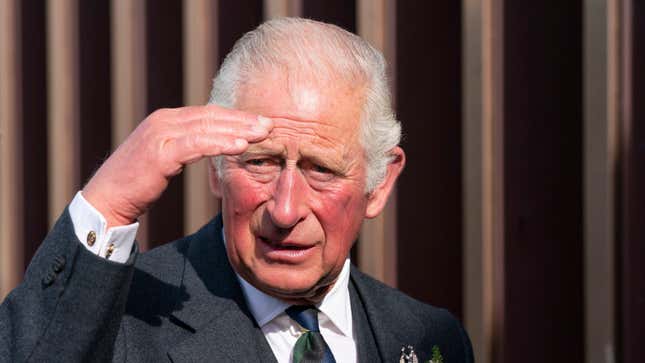Charles’s Wild ‘Cash for Access’ Scandal, Explained
The Prince of Wales finds himself awfully close to a grift involving his charitable organization
CelebritiesRoyal Tea
Image: (Photo by Jane Barlow – WPA Pool/Getty Images)
Like his brother Andrew, Prince Charles is currently sitting in hot waters—and this time, it’s not even about his marital history or his relationship with his youngest son. Instead, the Prince of Wales has found himself awfully close to a burgeoning “cash for access” scandal involving one of his charitable organizations, his former valet, some very rich men, and—a deep cut specifically for the historical romance fans, here—the editor of Burke’s Peerage. Three employees at the Prince’s Foundation have already resigned, and now Charles is facing the questions that no public figure wants to face: What did he know, and when did he know it?
Charles’s latest troubles began with an investigation into his foundation’s dealings with Saudi billionaire Mahfouz bin Mahfouz. In early September, the Times of London reported that Michael Fawcett, one of Charles’s closest aides—who rose from a job as a footman at Buckingham Palace to serve as Charles’s valet and ultimately became chief executive of the Prince’s Foundation, one of Charles’s charities—had temporarily stepped down from his position when he became aware they were planning to publish a story alleging he’d helped secure an honor called Commander of the Order of the British Empire for Mahfouz, after Mahfouz donated over a million pounds to royal charities. (CBEs are given to people “to recognise a positive impact they have made in their work.”)
“Mahfouz Marei Mubarak bin Mahfouz paid tens of thousands of pounds to fixers with links to the prince who had told him they could secure the honour,” the Times reported, adding that “Fawcett, whom Charles once said he could not survive without, co-ordinated the application process and helped “upgrade” the proposed honour for Mahfouz from an OBE to CBE, according to leaked emails.” This is, to put it simply, very much a no-no—and yet also, very much in keeping with a long history.
-

-

-

-

-

-

-

-

-

-

-

-

-

-

-

-

-

-

-

-

-

-

-

-

-

-

-

-

-

-

-

-

-

-

-

-

-

-

-

-








































